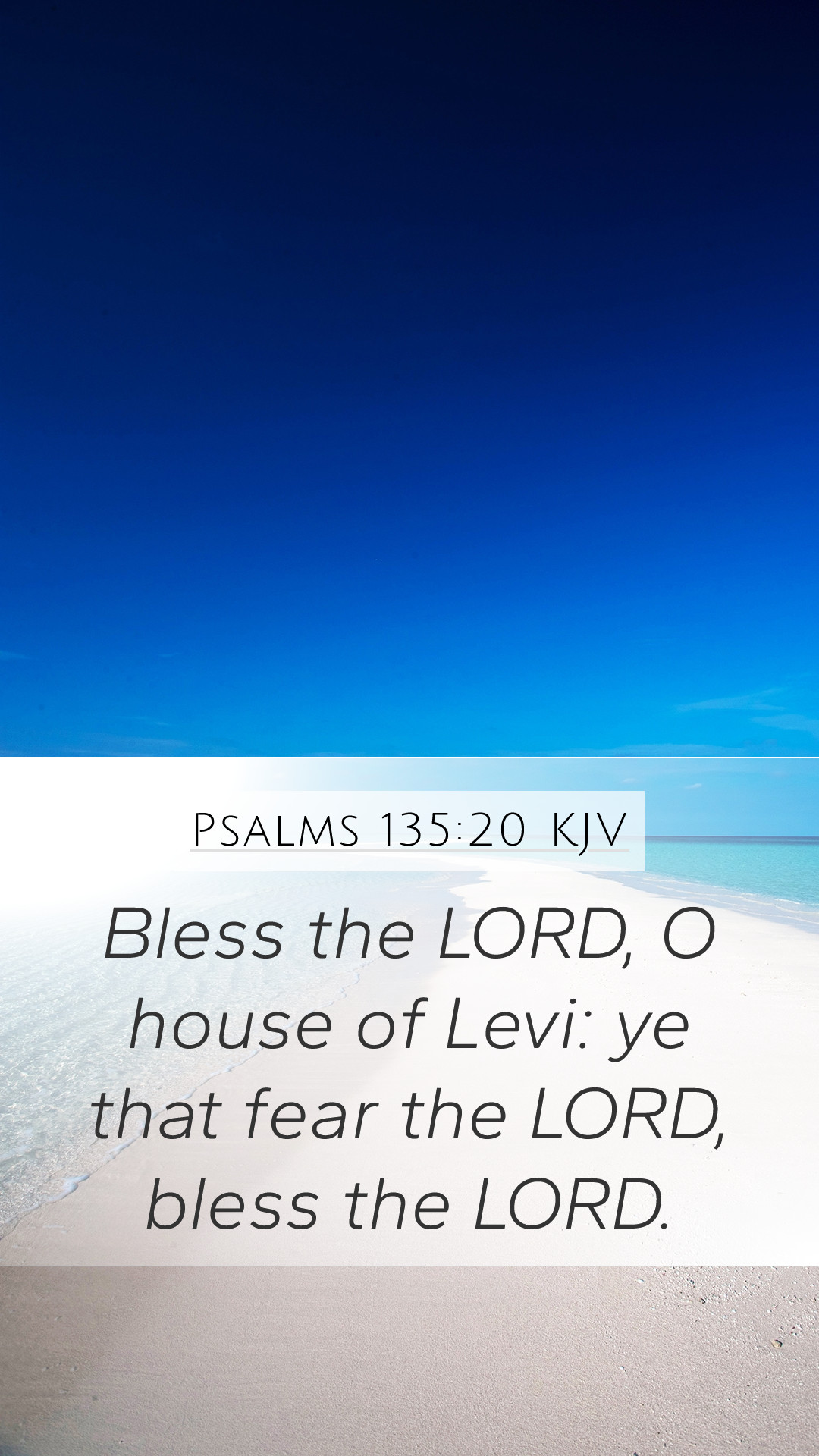Bible Verse Meaning of Psalms 135:20
Psalms 135:20 reads: "Blessed be the Lord out of Zion, which dwelleth at Jerusalem. Praise ye the Lord." This verse is an invitation and a call to worship, specifically pointing towards the importance of Zion and Jerusalem in the relationship between God and His people. Below, we explore the meaning of this verse through combined insights from public domain commentaries.
Understanding Scripture: Insights from Commentaries
This verse is significant in the context of worship and recognition of God's sovereignty. Let’s delve into the interpretations by various biblical scholars:
-
Matthew Henry's Commentary:
Henry highlights the themes of praise and blessing in this verse. He emphasizes that the acknowledgment of God living in Zion signifies His special relationship with His chosen people. The mention of Jerusalem underscores the historical and spiritual importance of this location as the center of Jewish worship.
-
Albert Barnes' Notes:
Barnes explains that the Lord's dwelling in Zion symbolizes His presence among His people. He notes that this verse serves as an expression of gratitude that the Lord has established a place where His people can worship Him, reminding us that this is both a reference to the past and a declaration for the future.
-
Adam Clarke's Commentary:
Clarke focuses on the broader implications of this verse for the people of Israel. He points out that the command to praise the Lord is not only an act of worship but also a recognition of God's guidance throughout history. He discusses how this verse serves as an encouragement to the faithful to stay true to their vows of worship in Jerusalem.
Bible Verse Interpretations and Explanations
These interpretations provide a rich tapestry of meanings that contribute to our overall understanding of this verse:
- Divine Presence: The Lord's dwelling in Jerusalem signifies His active presence in the midst of His people, encouraging them to commit to worship and reverence.
- Call to Worship: The phrase "Praise ye the Lord" triggers a communal response that elevates the act of worship as a central mandate for the faithful, fostering community both in ancient times and today.
- Historical Relevance: The importance of Zion and Jerusalem is rooted in the history of Israel, wherein these locations represented not only God’s promise but also the physical and spiritual home for His people.
Theology and Applications
Understanding Psalms 135:20 also allows for theological reflections and practical applications:
- Worship as a Priority: In examining our modern practice, the verse serves as a reminder that worship should be a primary focus for believers, similar to how the Israelites revered Zion and Jerusalem.
- Community Worship: The verse encourages congregational worship and cooperation, reflecting the notion that praise is not merely an individual act but a communal event.
- God’s Faithfulness: This verse serves as an affirmation of God's faithfulness to His promises, providing assurance to believers of His continuous presence in their lives.
Bible Cross References
This verse connects with several other scriptural passages which enhance its meaning:
- Psalm 122:6-9: An exhortation for peace in Jerusalem.
- Isaiah 40:9: Heralding the good news of God's presence.
- Psalm 46:4-5: God is a refuge and strength, present in troubles.
Conclusion
The examination of Psalms 135:20 through the lens of biblical commentary provides a multi-faceted understanding of the text, emphasizing the call to worship, God’s presence, and the historical significance of Jerusalem and Zion. By reflecting on these themes, believers are encouraged to deepen their worship practices and recognize the lasting implications of God dwelling among His people.
This verse serves as a reminder of the importance of corporate worship, the significance of recognizing God in places that represent His promise, and the call to live in continuous praise.


